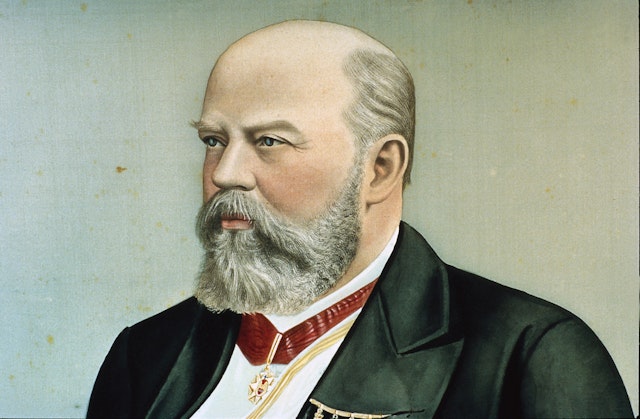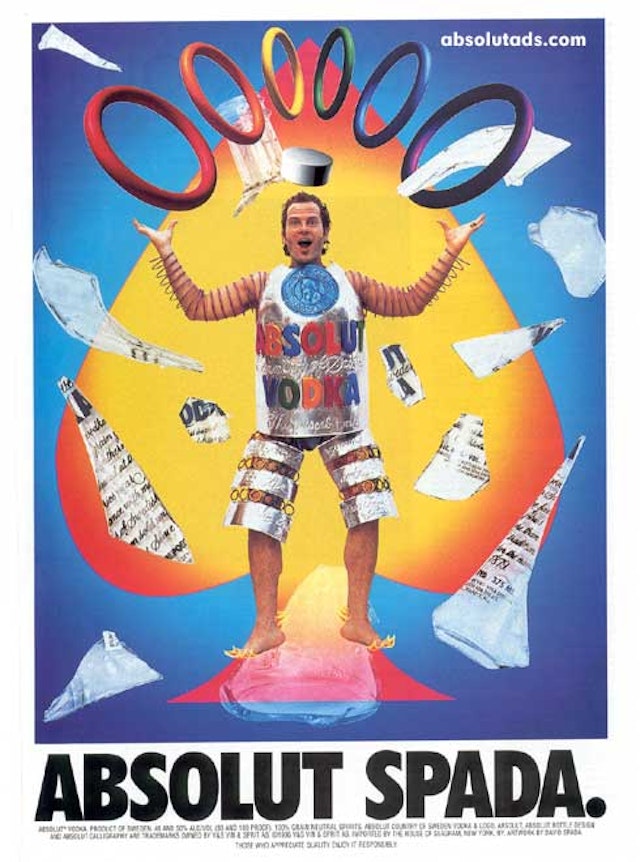Purpose-led marketing since 1879: why now is the time for Absolut to reignite its core beliefs
Absolut has launched a new communications platform – ‘Create a better tomorrow tonight’ - which it hopes will cut through the noise from a plethora of other "purpose" led campaigns.
The initiative, along with its first piece of creative, is both a shrine and a testament to the core beliefs of freedom, equality and sustainability that have buttressed the brand since its inception in 1879. But in a time when almost every brand has something to say on the state of the world, why is the brand dusting these principles down now?
It’s hard to be cynical about the sincerity of Absolut’s values; on paper, it arguably has more ethics than certain world leaders do. The progressive character of its founder Lars Olsson Smith has been distilled to create a company that outdoes even its home country of Sweden in terms of gender equality and sustainability: women take up half the seats of its staff room and leadership team, while Anna Malmhake holds the title of chief executive. The company has also implemented a number of environmental policies such as turning its waste into agricultural feed and creating sparkling water from its CO2 emissions.

The brand also believes in freedom of expression and people’s freedom to love whoever they want. In the past, the latter materialised in groundbreaking work around the LGBT+ community: advertising in gay publications The Advocate and After Dark just two years after its 1979 US launch, teaming up with Gay Pride ring designer David Spada in 1992 and supporting gay film festivals such as Frameline and Outfest since 1994.

But the creative campaign launching today (5 July) goes beyond the LGBTQ+ community and zeroes back in on the core concept of a freedom to love absolutely anyone. Created by BBH for digital and social, the film Equal Love is a cinematic piece of choreography that fluidly follows the moving journey of a kiss. It was directed by Aoife McArdle and kick starts ‘Create a better tomorrow tonight’.
“Freedom of choice goes beyond sexual preference,” said Gaia Gilardini, global communications director at Absolut. “LGBTQ+ plays a role in it but we see it as a broader piece that includes all kinds of people.
“The cinematography and the poetry behind the message was really what we were looking for. It’s not easy to portray a metaphor and elevate a message,” she added. “Some people might take it too literally. There is always that risk. But we feel [McArdle’s] done an amazing job with the choreography and all these amazing characters.”
Is Gilardini worried that the steamily romantic nature of the film will stir up a backlash?
“Not everybody shares the same beliefs and values but we hope the people that do will be happy to see that this conversation is still active – and we’re happy to engage in this conversation,” she said diplomatically. “Everything we do is about supporting these values."

Gilardini is evangelical in her belief that the brand has never let these values die internally. But she does admit they haven’t been expressed in its communications as well as they could have been over the last five years.
“Maybe we had been a bit more focused on promoting new products or communicating our world from a visual perspective, rather than stating ‘this is one of our beliefs’, this is what we really believe in,” she pondered. Looking back at Absolut's recent body of work, it appears to have priortised experimentations in creative tech and positioning itself as a premium nightlife brand.
Post-Pepsi/Kendall Jenner debacle it could be a risky business putting the words ‘purpose’ and ‘marketing’ in the same sentence for fear of getting it wrong. But Gilardini and global chief marketing officer, Craig Johnson - who hinted at the turnaround at the Cannes Lions festival - have made it clear that Absolut now has a confidence in itself, its agency and its audience when it comes to communicating such stark beliefs.
“If you are drinking any spirit, beer, wine you want to drink it because they have values that match yours,” said Johnson. “If you believe in saving the world, and progressive values, there is only one choice, and that choice is Absolut.”
If it does nail this positioning then perhaps its biggest threat will not be itself or any backfiring creative, but other spirits brands employing a similar strategy. Absolut may have done purpose marketing first but others have certainly followed: Russian rival Smirnoff has also been a consistent advocate of Pride, for instance, while Jack Daniel’s continues to support the grassroots music scene and smaller venues.
The brand also faces the threat of smaller, craft distillers that are entering the market as challengers to the established labels. Craft spirit launches increased by 265% globally between 2011 and 2015, according to Mintel, and brands such as Sipsmith Gin and Brewdog’s Lone Wolf come armed with values aplenty and a smaller, more transparent corporate structure that consumers are – arguably – more likely to believe in than the offspring of multinational conglomerate Pernod Ricard.
But unlike the market’s debutantes, Absolut can also bank on legacy of producing high-quality of vodka and of operating in a fashion consistent with the values it promotes.
“We are a lifestyle brand and we are an image brand but we’re adding our provenance and the progress of values in Sweden," said Johnson. “It adds credentials to our brand.”
“Maybe not everybody shares the same beliefs and values but we have always been doing this,” added Gilardini. “We’re not following a trend or reinventing the company purpose – we’ve always used our beliefs and acted accordingly on them. It’s certainly not the first time for us.
“Now, ‘Create a better tomorrow tonight’ is a commitment to communicating our values."

